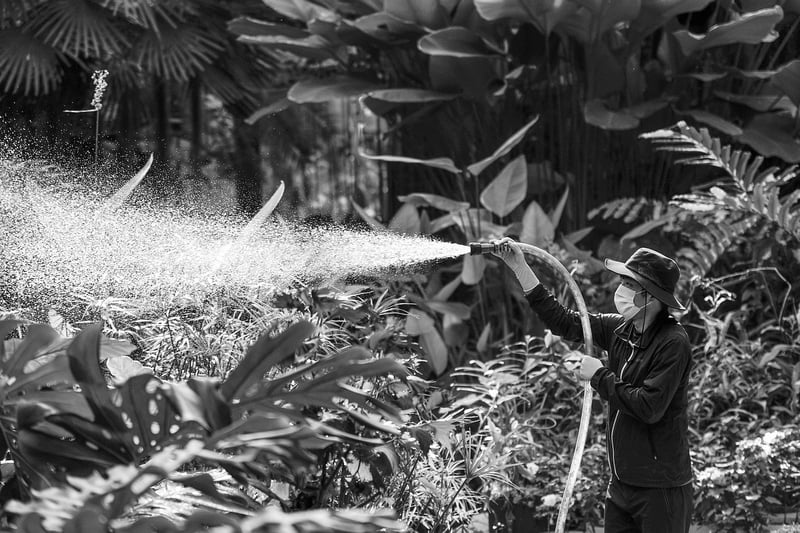Watering
Essential Advice for Proper Plant Watering
Proper watering is crucial for the health and vitality of your plants. Here are some essential tips to ensure you water your plants effectively:
1. Understand Your Plant's Watering Needs
Not all plants have the same watering requirements. Some plants prefer moist soil, while others prefer to dry out between waterings. Research the specific watering needs of each plant in your care.
2. Water at the Right Time
Water your plants in the morning to allow for absorption during the day. Avoid watering in the evening as this can promote fungal growth due to prolonged moisture on leaves overnight.
3. Use the Right Amount of Water
Overwatering can lead to root rot, while underwatering can cause wilting and nutrient deficiencies. Find the right balance by checking the soil moisture regularly and adjusting your watering routine accordingly.
4. Water the Roots
Direct your watering efforts towards the base of the plant where the roots are located. Avoid wetting the foliage excessively, as this can lead to diseases and sunburn.
5. Consider the Planting Container
The type of container your plant is in can affect its watering needs. Plants in terracotta pots may dry out faster than those in plastic containers. Adjust your watering frequency based on the material of the pot.
6. Monitor Drainage
Ensure your plant pots have proper drainage holes to prevent waterlogging. Excess water should be able to drain out freely to avoid drowning the roots.
7. Use Room Temperature Water
Avoid using very cold or hot water on your plants. Room temperature water is ideal as extreme temperatures can shock the plant roots.
8. Invest in a Watering Can with a Fine Spout
A watering can with a fine spout allows for precise watering without splashing water everywhere. This helps deliver water directly to the plant's base while avoiding unnecessary mess.
9. Mulch Your Plants
Adding a layer of mulch around your plants helps retain soil moisture, reducing the frequency of watering needed. Mulch also helps prevent weed growth and protects the soil from erosion.
10. Observe Your Plants
Pay attention to how your plants respond to your watering routine. Wilting, yellowing leaves, or mold growth can indicate improper watering. Adjust your watering practices based on your plant's feedback.
By following these essential tips, you can ensure that your plants receive the right amount of water to thrive and flourish in your care.

Remember, watering your plants is a balancing act that requires attention and care. With practice and observation, you'll develop a green thumb and provide your plants with the hydration they need for optimal growth.
